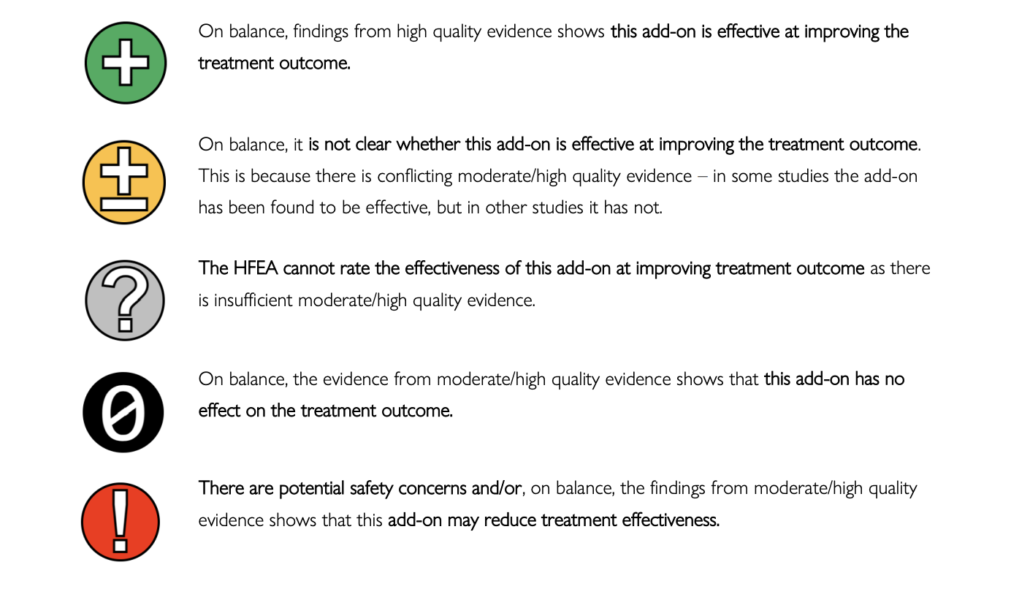This system is shown below. More information can be found on the HFEA website.

In healthcare, knowledge comes from different sources. These include:
- knowledge derived from research, sometimes called evidence
- knowledge derived from audit and routinely collected data, sometimes called statistics
- knowledge derived from the experience of patients/service users and professionals
The approach to evidence should aim to ensure information:
- is balanced and reduces bias
- acknowledges uncertainty
- is produced using an explicit evidence-based process
- uses consistent language
- is impartial
Randomised controlled trials (RCTs) use research methods aimed at reducing bias and that’s why they are considered the only objective way to assess whether an add-on works. However, RCTs are difficult to carry out and require a large amount of time and money and may be difficult to recruit to depending upon what is being studied. RCT’s aren’t the only way of collecting meaningful information.
For example large datasets may provide insights in to the effectiveness of add-ons but there is some discussion regarding the relative benefits of each of these approaches. In the absence of good RCTs as evidence, an increasing proportion of the sector is relying on their own experiences and analysis of live birth rates and patient outcomes within their own clinics, to determine the suitability and effectiveness of treatments for patients. It may be appropriate to consider alternative evidence in these circumstances.
Factors to consider when evaluating add-on treatments
- care should be taken when considering add-on treatments
- risks and benefits should be carefully evaluated with your Consultant
- the level of evidence is an important consideration when considering your options
- live-birth rate may not be the only outcome important to you in terms of your treatment



